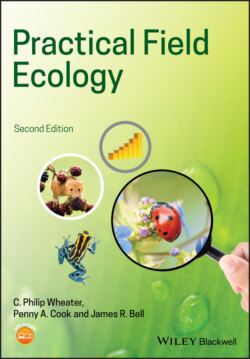Читать книгу Practical Field Ecology - C. Philip Wheater - Страница 37
Ethical issues
ОглавлениеThere are a number of ethical issues that should be considered before engaging on any study, even if there are no legal restrictions on the sampling regime proposed. Where any damage to a habitat or any destructive sampling or organisms is to be attempted, there needs to be a proper evaluation of the balance of costs and benefits. For example, it is possible through handling animals and plants to vector a disease both to animals and humans and thereby increase the risk of spread. Frogs, for example, carry salmonella which can infect humans who come into contact with their faecal matter, but humans can also vector pathogenic fungi to frogs, endangering these amphibians. Large‐scale depletion of populations of plants or animals should not be considered unless the data being generated are of significant value, or the destruction will occur anyway because of another impact (e.g. fogging trees to remove insects where the trees will be clear felled in the very near future – see p. 185). Similarly, where there is a risk of harming non‐target species, the methods should be modified to ensure that these are unaffected. For example, when trapping for small mammals or invertebrates, there is a danger that animals such as shrews can be trapped and killed; modifications to the techniques can avoid this (see p. 266). Such problems can sometimes become apparent only once pilot studies or even the main study has begun. Under such circumstances, the methods should be modified or the study abandoned, particularly in cases where species of conservation importance are under threat. In one such example, whilst pitfall trapping for invertebrates, researchers inadvertently captured a number of great crested newts from wet grassland. Since it would be difficult to exclude the newts from the traps, trapping at this particular site was abandoned (Cullen 1995). When animals are collected alive, they should only be released into the environment from which they were taken to avoid adversely impacting other habitats. Similarly, plant material and soils should not be disposed of in areas where they might cause ecological issues (e.g. biological or heavy metal contamination). Costello et al. (2016) provide a checklist of ethical aspects that should be thought through before, during, and after implementing any field project. Ethical aspects of working on animals are covered by Reed and Jennings (2007). Where relevant, your work may need to be examined through a local ethical review process, often captured in a risk assessment. Most universities and similar organisations operate these, and further details can be found in RSPCA and LASA (2010). It is also worth reading the discussions by Minteer and Collins (2005a, 2005b, and 2008) and Parris et al. (2010) who comment on fieldwork activities.
